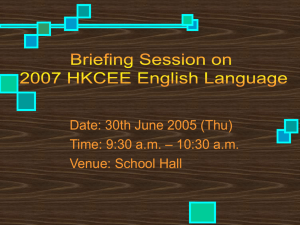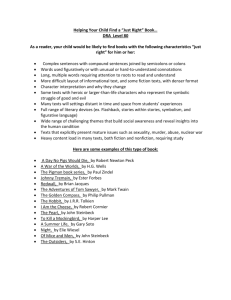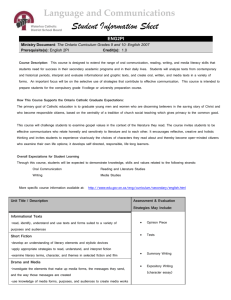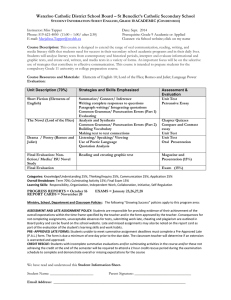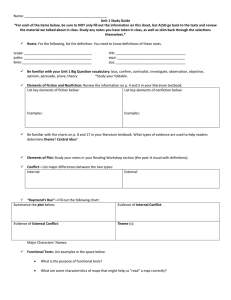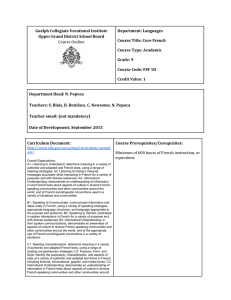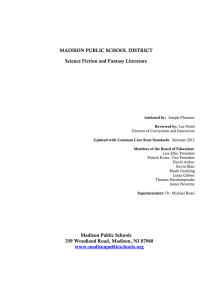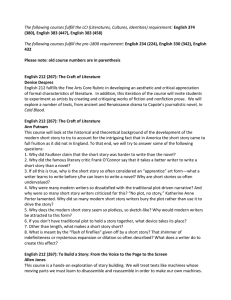Course Outline Guelph Collegiate Vocational Institute Department:
advertisement
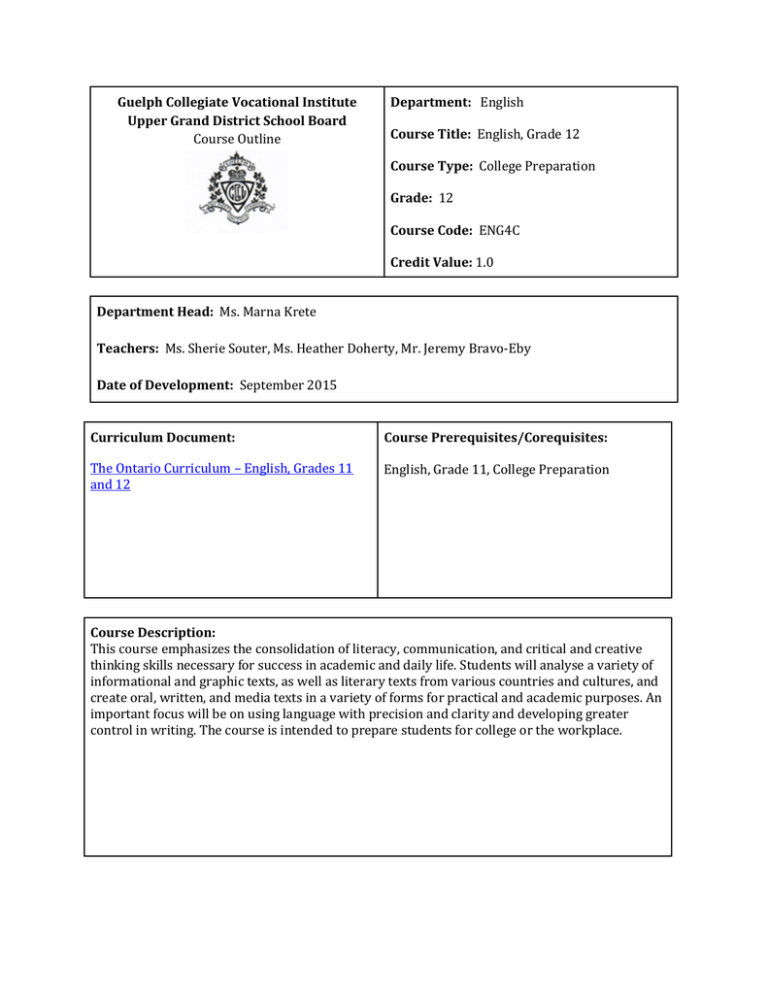
Guelph Collegiate Vocational Institute Upper Grand District School Board Course Outline Department: English Course Title: English, Grade 12 Course Type: College Preparation Grade: 12 Course Code: ENG4C Credit Value: 1.0 Department Head: Ms. Marna Krete Teachers: Ms. Sherie Souter, Ms. Heather Doherty, Mr. Jeremy Bravo-Eby Date of Development: September 2015 Curriculum Document: Course Prerequisites/Corequisites: The Ontario Curriculum – English, Grades 11 and 12 English, Grade 11, College Preparation Course Description: This course emphasizes the consolidation of literacy, communication, and critical and creative thinking skills necessary for success in academic and daily life. Students will analyse a variety of informational and graphic texts, as well as literary texts from various countries and cultures, and create oral, written, and media texts in a variety of forms for practical and academic purposes. An important focus will be on using language with precision and clarity and developing greater control in writing. The course is intended to prepare students for college or the workplace. Term Work (70% of the final mark) Unit Title Nonfiction Big Ideas Culminating Tasks 1. We are influenced by our cultural environment 1. Advertisement deconstruction 2. We need to think critically about our world in order to fully participate in it 2. Article analysis and written response Novel Study: Theories of Relativity or After River 1. Fiction helps us understand the real world 2. Part of being independent is seeking support when you need it 1. Topic-based essay 2. Unit test Independent Study 1. Clear communication involves active listening and collaboration 2. Clarity in spoken and written language helps us understand and be understood by others 1. Oral presentation 2. Process documentation and collaboration Play Study: Twelve Angry Men 1. True justice is thoughtful and compassionate 2. Prejudice clouds our judgment and inhibits justice 1. Unit test 2. Written response Novel Study: Of Mice and Men 1. Fiction helps us understand the real world 2. Fiction helps us become compassionate contributors to our community 1. Formal paragraph 2. Research report Film Study 1. The way a story is told influences how we understand it 2. Thinking about art helps us identify with others and overcome our own struggles 1. Storyboard 2. Written rationale Culminating Tasks/Exams (30% or the final mark) Task Description Culminating activity Reflection on course themes and big ideas – 15% Written exam Timed, written test during exam period – 15% Based on the range of students’ learning needs, a selection from the strategies listed below may be utilized. Refer to list of teaching and assessment strategies. Teaching Strategies: • Learning communities • Scaffolding • Active learning • Cooperative learning • Critical thinking • Games • Differentiated instruction Assessment and evaluation strategies: • Reflection journal responses • Quizzes and tests • Oral descriptions • Oral presentations • Conferencing • Demonstration tasks • Exam Textbooks/Learning Resource Materials • Various short films, documentary films, and media texts • News and informational articles • Novel: Theories of Relativity or After River • Twelve Angry Men • Of Mice and Men • Selected films Fees for Learning Materials/Activities Learning Materials/Activities Cost none Please refer to the GCVI Student Handbook for our school policies on: ● academic integrity ● late and missed assignments
